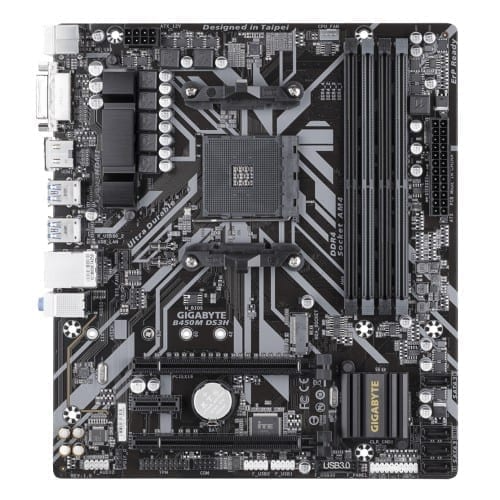Upgrading to a Gigabyte motherboard can significantly enhance your computer’s performance and functionality, but making the right choice requires careful consideration of several factors. A motherboard serves as the backbone of your PC, connecting all essential components and ensuring seamless communication between them. Therefore, selecting the right computer motherboard Gigabyte model to suit your needs is a critical step.
Compatibility with Components
First and foremost, ensure compatibility between the motherboard and your existing or planned components. Check the processor socket type supported by the Gigabyte motherboard, as it must match your CPU. For example, if you have a processor that fits an LGA 1700 socket, ensure your chosen motherboard supports it.
Additionally, verify compatibility with your RAM type (DDR4 or DDR5), storage drives (SATA or NVMe), and GPU. Failure to confirm compatibility could lead to unnecessary costs or system issues.
Form Factor
The size, or form factor, of the motherboard is also a key factor when upgrading. Gigabyte offers motherboards in several form factors, including ATX, Micro-ATX, and Mini-ITX.
Choose a size that fits your PC case while providing the necessary expandability. For larger builds supporting multiple GPUs or extensive cooling solutions, an ATX board may be ideal. Conversely, a Mini-ITX board would be better suited for compact, space-saving systems.
Features and Connectivity
Modern Gigabyte motherboards come with a variety of features designed to improve performance and user experience. Pay attention to USB port configurations, such as the availability of USB 3.2 or Thunderbolt support for faster data transfer speeds.
Motherboards with onboard Wi-Fi and Bluetooth can save you the hassle of purchasing separate adapters. Storage connectivity is another important aspect, with options like M.2 NVMe slots providing high-speed data transfer for SSDs. If you plan to overclock your system, consider Gigabyte boards that include advanced BIOS settings and power delivery features tailored for optimal overclocking.
Price and Build Quality
Finally, weigh the cost against the features offered to determine the value of the motherboard. Gigabyte is known for producing motherboards at a range of price points, from budget-friendly options to high-end models with premium features. Evaluate your budget and ensure the motherboard meets your performance requirements. Also, consider the build quality, as durable materials and reliable power phases are essential for long-term use.
By carefully considering these factors, you can confidently choose a Gigabyte motherboard that meets your needs and enhances your PC’s capabilities. A well-chosen motherboard ensures longevity, compatibility, and performance, setting the foundation for a powerful computing experience.
